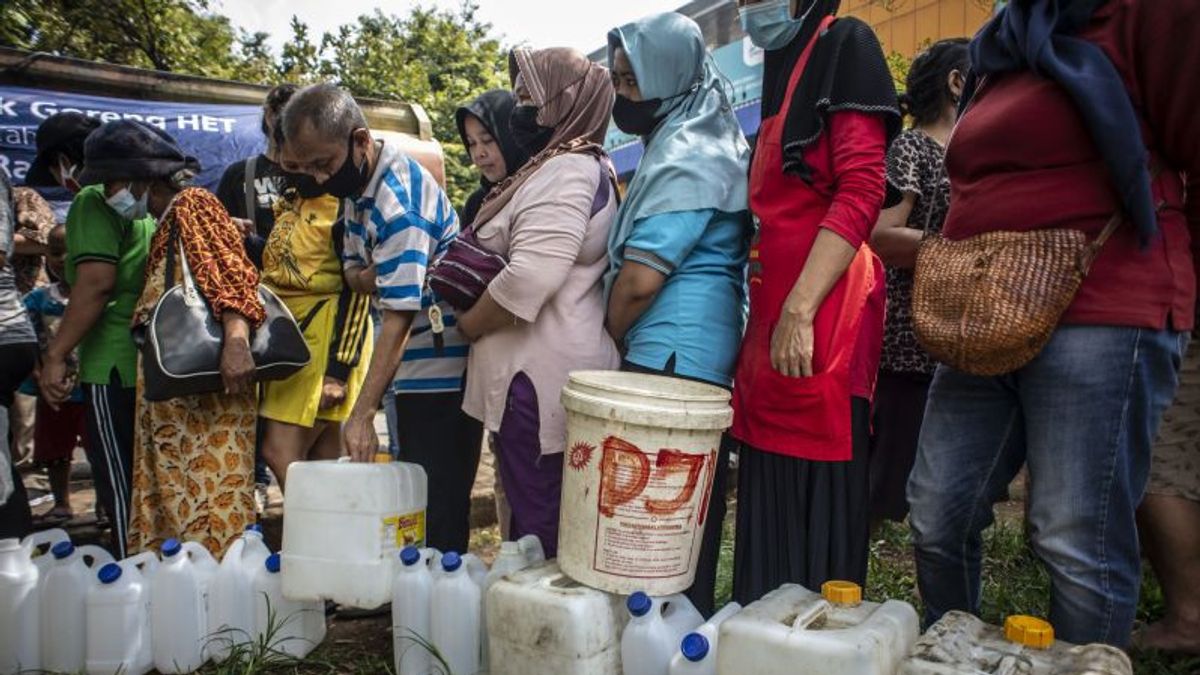JAKARTA - Legal practitioner Asep Irwan said the distribution or distribution of confiscated cooking oil should be carried out if the goods have been confiscated by the state based on a court decision.
"How is it distributed again to the public? Yes, speed up the hoarding trial, impose heavy penalties. The evidence is confiscated for the state, then the state will distribute it to the people such as cheap markets or free social assistance to the poor," said Asep, quoted by Antara, Saturday, 19 March.
Asep explained that the provisions related to evidence have been regulated in Article 46 of the Criminal Procedure Code (KUHAP), which reads:
Paragraph (1) "The object that is subject to confiscation is returned to the person or to them and to whom the object is confiscated or to the person or to those who are most entitled if:
a. the interests of investigation and prosecution no longer require;
b. the case is not prosecuted because there is not enough evidence or it turns out that it does not constitute a crime;
c. the case is set aside for the public interest or the case is closed for the sake of law, unless the object is obtained and is a criminal act or is used to commit a criminal act".
Paragraph (2) "If the case has been decided, then the object subject to confiscation is returned to the person or to those named in the decision unless according to the judge's decision the object is confiscated for the state, to be destroyed or to be damaged until it can no longer be used or if the object is This is still needed as evidence in other cases.
Asep also emphasized that evidence that has a criminal element must obtain a court decision before further action is taken.
Regarding the confiscated cooking oil to be distributed to the public, a court decision must first be obtained, Asep said so that the status of the goods is clear.
"Evidence, if there is a crime, wait for the judge's decision, so as soon as possible the case will be sent to the prosecutor for trial so that the status of the evidence is seized for the state and by the state to be distributed to the people. The evidence must have a clear status," said the former judge.
Previously, the Depok Metro Police on Tuesday (15/3) raided a warehouse that stored thousands of liters of cooking oil repackaged under the brands Wasilah 212 and Kita 212.
The Depok Metro Police then distributed the cooking oil considering the current scarcity of cooking oil.
Head of Criminal Investigation Unit of the Depok Metro Police, AKBP Yogen Heroes Baruno, said the cooking oil had been distributed the day after the raid, namely on Wednesday (16/3). "It was carried out the next day," he said.
The English, Chinese, Japanese, Arabic, and French versions are automatically generated by the AI. So there may still be inaccuracies in translating, please always see Indonesian as our main language. (system supported by DigitalSiber.id)









